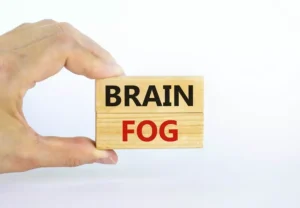
Potential complications from caffeine withdrawal include loss of productivity due to headaches, inability to concentrate, and insomnia. As with other substances, avoidance of the discomfort of withdrawal is often a barrier to abstinence. Alcohol is a diuretic, which means that it promotes water loss by increasing urine output. In another 2020 study, researchers found that people with epilepsy were more 5 times more likely to die from alcohol-related causes than people without epilepsy. Although alcohol rarely causes seizures, alcohol’s relaxing effect is removed during withdrawal. American Addiction Centers (AAC), the parent company for Alcohol.org, is a nationwide provider of treatment providers and works to ensure recovery is accessible to everyone in need.
- Richard Saitz suggested that Alcohol should not be used to treat withdrawal for several reasons 3.
- As your body adjusts to life without the medication, you may be given medication and therapy options to help you get through the withdrawal phase as safely as possible.
- This part of your brain works with feel-good chemicals like dopamine, which are responsible for rewarding, pleasurable feelings.
Alcohol Withdrawal Seizures: Causes, Symptoms & Management
- Autonomic and psychomotor dysfunction often characterize the withdrawal symptoms.
- This condition requires immediate medical attention and professional treatment to ensure safety and prevent complications.
- The aim of the present paper was to review the evidence base for the history, diagnosis and management of the alcohol withdrawal syndrome (AWS), with a focus on role of benzodiazepines in AWS.
- Ultimately, regular medical check-ups serve as a preventive strategy for maintaining quality of life and prolonging independence, particularly for those navigating the challenges of alcohol recovery.
When compared to the withdrawal syndrome of GABA agonists, such as alcohol and benzodiazepine, the opiate withdrawal response is usually mild and less severe. Although the experience is exceptionally distressing for the patient, it is not life-threatening when drug discontinuation occurs naturally. The withdrawal usually resembles a flu-like illness characterized by yawning, sneezing, rhinorrhea, nausea, diarrhea, vomiting, and dilated pupils. Depending on the half-life of the drug, the symptoms may last for 3 to 10 days. Participants in this course gain essential knowledge on recognizing and evaluating various withdrawal syndromes, enabling them to implement effective management strategies tailored to each patient’s needs.

Addressing Underlying Health Issues

Studies focusing on alcohol withdrawal seizures as the main outcome are lacking (62). Outpatient withdrawal may be more appropriate for patients who are at low risk of developing severe withdrawal syndrome. Patients with moderate or severe alcohol withdrawal, medical complications and multiple failed attempts at abstinence https://ecosoberhouse.com/ may need close monitoring, in indoor setting.
- This unconventional approach has sparked discussions surrounding its safety and effectiveness.
- They may also provide intravenous fluids to prevent dehydration and medication to ease your symptoms.
- This made it difficult to advocate ‘gradual weaning’ as a justifiable intervention.
- The primary treatment includes administering benzodiazepines, which are effective for managing acute withdrawal symptoms and preventing further seizures.
Clinical Features

When you need to recover and relax, your body will go into a rest-and-digest state. Cocaine and stimulant use is rising globally, with an estimated 18.1 million cocaine users worldwide. Of the visits for cocaine use, 49% were in the southern United States, whereas 60% of psychostimulant use visits were in the western United States. Psychiatric and cardiovascular amphetamine addiction treatment concerns were seen most often.36 Statistical data on the prevalence of drug discontinuation syndrome is limited and likely underrepresented.
Pregnant patients should be admitted to the alcohol withdrawal seizure inpatient setting if they require withdrawal management, and an obstetrician should be consulted (79). The CIWA-Ar scale is appropriate for monitoring, and benzodiazepines and barbiturates are the treatment of choice in these patients (79). The relationship between alcohol and seizures was first mentioned by Hippocrates (39), as well as by the Romans, who even put a name to it, morbus convivialis, or “disorder related to partying” (35).
Signs and symptoms of alcohol withdrawal that are a result of this brain activity include tremors, muscle rigidity, seizures, and delirium tremens. Alcohol withdrawal syndrome can range in severity from mild to fatal, making it crucial for patients to present to care for evaluation of their symptoms. Patients who have had prior complicated withdrawals should not attempt to decrease their alcohol intake without consultation with their healthcare team.